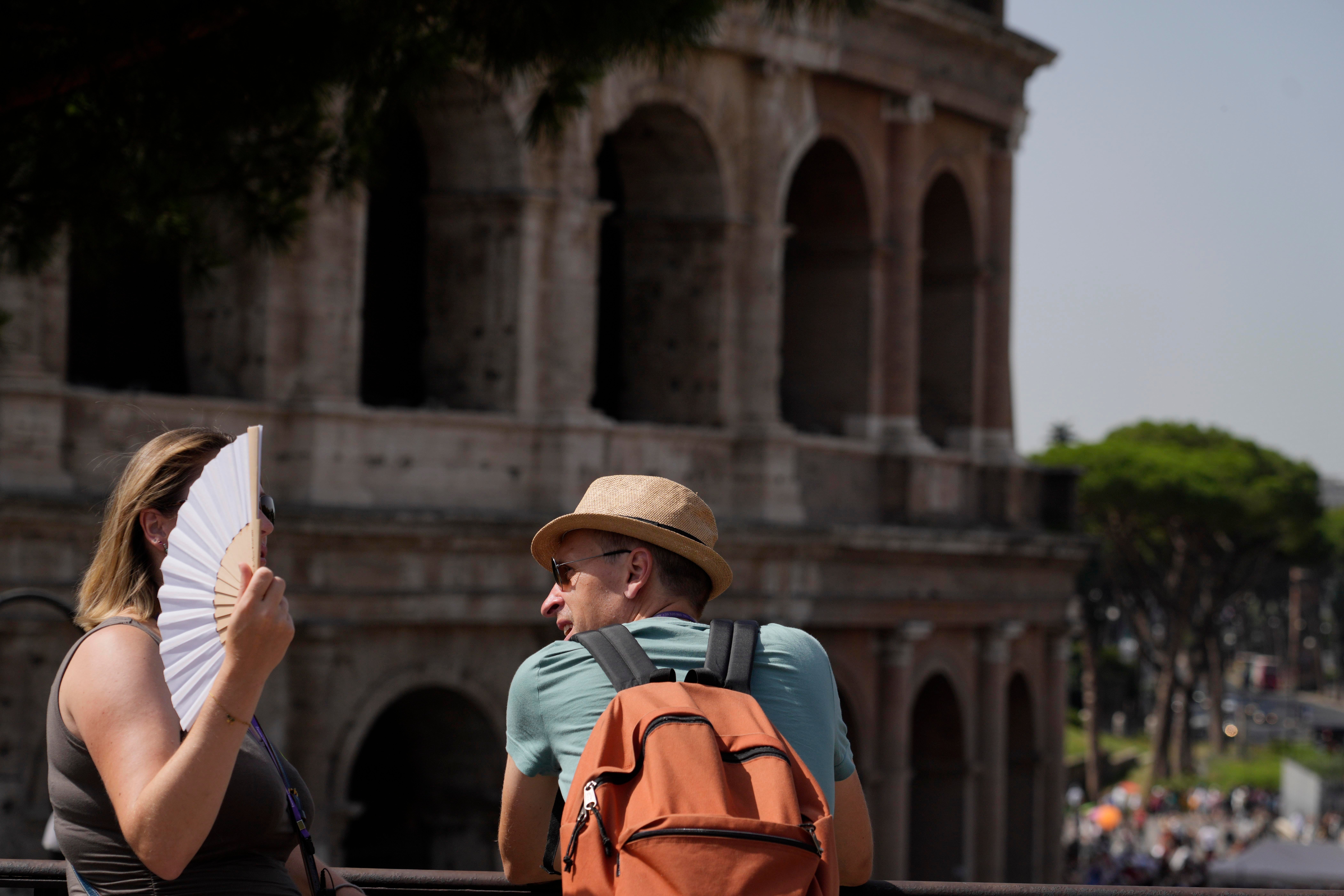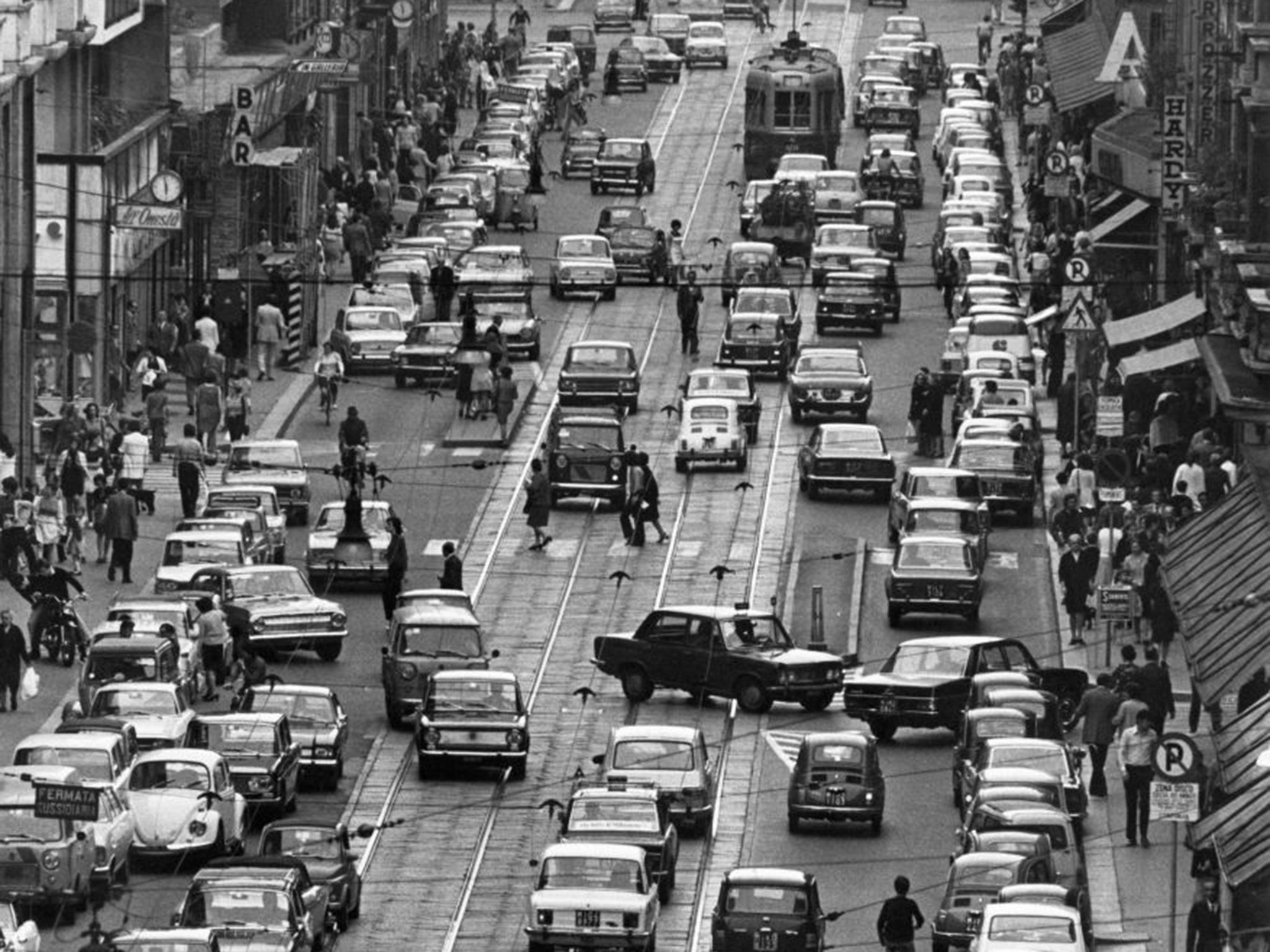Rome may finally solve one of its biggest problems for tourists
The Vatican predictes more than 30 million pilgrims will visit Rome next year, threatening to overwhelm its services

Your support helps us to tell the story
From reproductive rights to climate change to Big Tech, The Independent is on the ground when the story is developing. Whether it's investigating the financials of Elon Musk's pro-Trump PAC or producing our latest documentary, 'The A Word', which shines a light on the American women fighting for reproductive rights, we know how important it is to parse out the facts from the messaging.
At such a critical moment in US history, we need reporters on the ground. Your donation allows us to keep sending journalists to speak to both sides of the story.
The Independent is trusted by Americans across the entire political spectrum. And unlike many other quality news outlets, we choose not to lock Americans out of our reporting and analysis with paywalls. We believe quality journalism should be available to everyone, paid for by those who can afford it.
Your support makes all the difference.After an 18-year wait, Rome is finally going to solve a problem that regularly leaves tourists and locals stranded in the sun-soaked streets.
The Italian city is to get thousands of new taxis, the city’s mayor said on Friday.
Rome and other Italian cities have far fewer cabs than many European peers, with the powerful taxi lobbies resisting efforts to increase numbers or fully embrace the arrival of ride-hailing competitors such as Uber.
However Rome Mayor Roberto Gualtieri said that his office would next month issue tenders for 1,000 new taxi licences and 2,000 new Uber permits which would be active by December when the Roman Catholic Holy Year starts.
The Vatican has predicted more than 30 million pilgrims will visit the Italian capital next year, threatening to overwhelm its already strained services.
“We have been paralysed by the bureaucracy, but things are finally moving. The situation should be much better by November,” Gualtieri said.
At present, Rome has just 7,800 taxis, with no new licences issued since 2006, and an additional 1,000 executive private hire cars, which also serve as top-end Uber vehicles.
By contrast, London has some 19,000 taxis plus 96,000 private hire vehicles, according to 2020 data, while Paris has 18,500 taxis and at least 30,000 licences for private vehicles.

Social media sites are regularly flooded with horror stories of people left queuing for an hour or more at Rome‘s main train station, while taxi apps at peak time struggle to find cabs and calls to taxi dispatch numbers are left on an interminable loop.
Taxi driver cooperatives say the real problem is that Rome‘s public transport system is patchy, meaning they have to pick up the strain. They also say that outside the tourist high season there would not be enough work to go around if the city council issued more licences.
Gualtieri said his office would press ahead with new licences despite taxi drivers’ protests. “We cannot wait any longer,” he said.
Under Italian law, 80% of the proceeds from licence sales have to be handed over to existing taxi drivers as a form of compensation because the value of their own licences, which they can sell on, might be depressed by the arrival of new drivers.
The new licences are expected to sell for around 70,000 euros ($74,830) each, officials predict.
However, Eugenio Patane, head of mobility at Rome city hall, said having more cabs on the streets would not fix all the sector’s problems.
“We need a comprehensive overhaul at a national level of the laws on taxis. The current one was introduced in 1992, a different era, before there were smartphones or apps,” he said.
Join our commenting forum
Join thought-provoking conversations, follow other Independent readers and see their replies
Comments